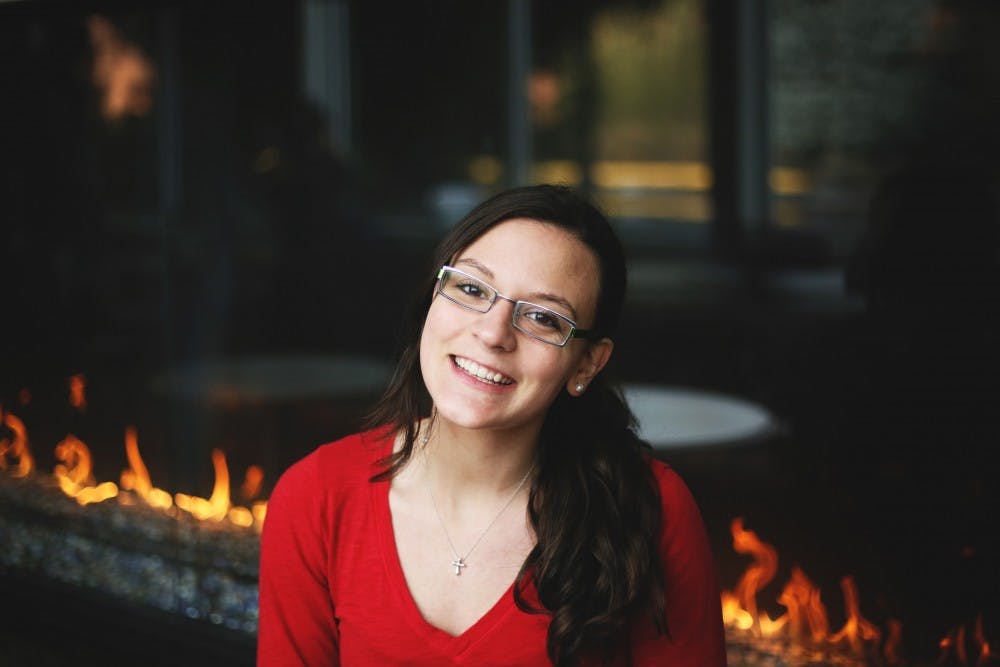You’re no longer a freshman. You’ve made it past the first year of college classes, you definitely don’t need a map anymore to get to where you need to go on campus, and you know the ins and outs about life on campus, yet the challenges never stop and every night you go to bed with thoughts of what’s next.
If you’re a sophomore or have ever been a sophomore and have felt like this, know that it is not unusual. It’s the ‘sophomore slump’.
For some sophomores, this year seems to bring a heavier load academically, socially, personally or all of the above. For civil engineer sophomore Kyle Cadiz, time is of the essence, but there never seems to be enough of it.
“I feel like I’ve got so much to do and no break time at all,” Cadiz shared. “Even when I do actually get to sit down and relax, I still feel stressed because there is something more productive I could be or should be doing.”
Director of Student Activities Jeromy Koffler has seen enough struggling sophomores in his 14 years at UP to know that the sophomore slump is no joke.
Koffler defines the sophomore slump as a “period of time when sophomore students feel less satisfied with their college experience and have more academic difficulty than they expected, and those two things intertwine and become an academic lull and disengagement in college life.”
“I feel ‘slumpy’, I feel like it’s harder and it’s going to keep getting harder,” Sophomore Aileen Calletano said. “But I do think it’s about assimilating.”
From 2014 to 2015, 92 percent of freshmen who started in the fall returned for their sophomore year. But what happens to that 92 percent after they stick around for that second year?
Getting through the second year is crucial in the college timeline. It’s a year of growing as a person, discovering new interests and hopefully confirming what you want to do in life. However, the pressure to really figure things out before your junior and senior year can create a feeling of ambivalence or anxiety.
Academically, there has been a recent shift in available resources. Once known as the Shepard Freshman Center, this on-campus resource expanded its mission to all students. Today it is known as the Shepard Academic Resource Center, located in the Buckley Center.
Another resource that Koffler highlighted was the Career Center.
“It’s never too late to switch (majors),” Koffler said. “The career center is an excellent resource to help discern what is best fit for you. Even if you’re a sophomore, go in!”
But for the majority of sophomores, they feel that the academic load has gotten way too heavy, way too quickly. Not only is the load heavy, but upper division and the growing stress about post-graduation plans can ignite the slump. Sophomore nursing major Celine Li feels this pressure.
“It was pre-reqs before and now all the classes I take are nursing and I want to do well,” Li said.
Financially, attending UP gets stressful. Every year the price of attendance goes up, but the scholarship packages students receive initially may not be affected by the increase. Koffler said that this takes students by surprise and can be a huge burden to handle. Whatever the personal matter may be, it is important to remember to talk to people, ask questions and know that no one will judge your decisions. You must do what is best for you.
Koffler worries about students who simply go to school and go home. He finds that getting involved in a particular cause can get students out of their own own worries and anxieties.
“The biggest thing is to connect to something you like to do,” Koffler said, “being open minded and taking a risk to get out of your comfort zone and try something new can be rewarding.”
Not everyone experiences this slump.
Sophomore engineering major Wesley Chambers said, “Personally, I’ve actually had a good academic year, better than last year.”
For others, they see this “slump” as merely the next, natural step in college.
“I think it’s just a way to explain that it’s harder than freshman year,” sophomore biology major Alexis Tomlin said, “it doesn’t affect me socially, if anything it’s an upward trajectory.”
Tomlin sees sophomores as having a handle on things, as they have had time to get used to being away from home, to know how to work a meal plan, and to develop a daily routine.
Whichever way spun, for many students, the sophomore slump is real. Senior Andrea Hernandez-Garibay acknowledges her own sophomore slump as she looked back on her four years at UP.
For Hernandez-Garibay, she felt that she was eased into her freshman year at UP. But when sophomore year came, she felt thrown into it in every way possible. She had changes in the relationships in her life that impacted her academically, physically, psychologically, spiritually.
Describing sophomore year as “growing pains”, she learned that through her tough year, she had a support system. She turned to her family, though they are in California, and went to the Health and Counseling Center once a week.
While the classes did not get any easier moving into junior year, the the self-care she learned to give herself during sophomore year provided her with better coping skills.
“Life’s a struggle, but it’s learning to look at the best in life, and really make the most of it,” Hernandez-Garibay said, “I have tried to make every good and bad experience one that I can learn from grow from.”
From both an advisor-point-of-view and a student-point-of-view, it is important to reach out to others and to resources if you’re feeling the slump.
“Don’t just sit in your room and stress about it, talk to people,” Koffler advised, “The more you know about yourself and the more you get feedback from others about what you’re good at, the better choices you can make about what path you’re on.”








